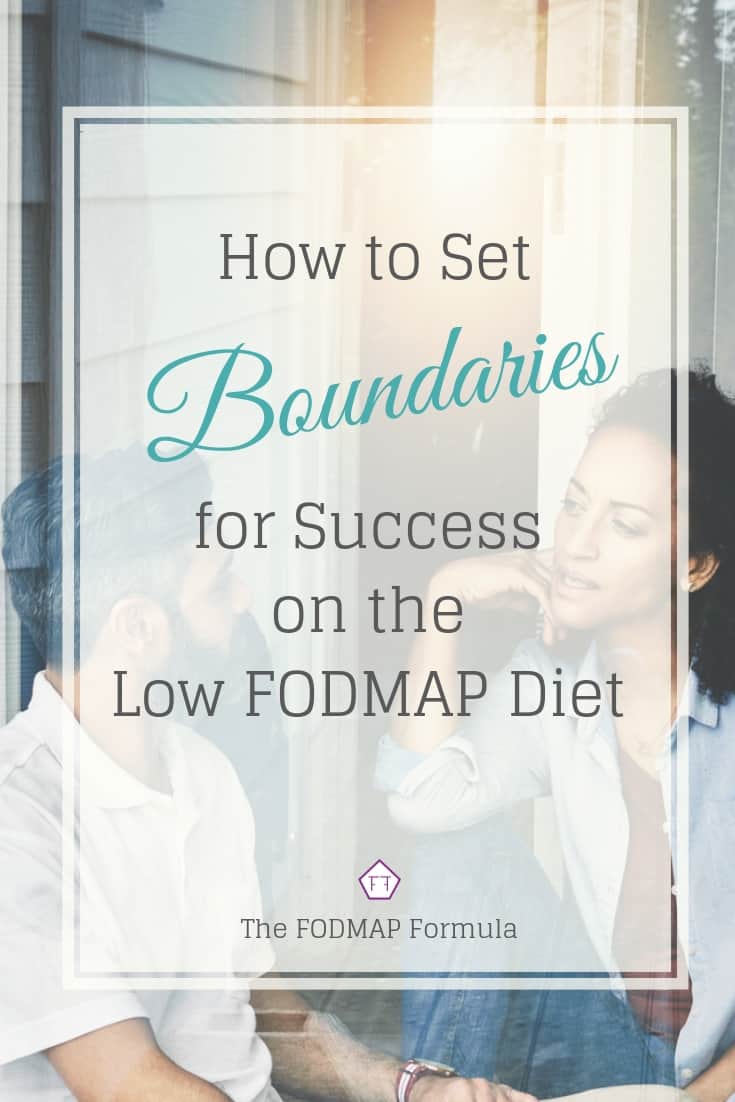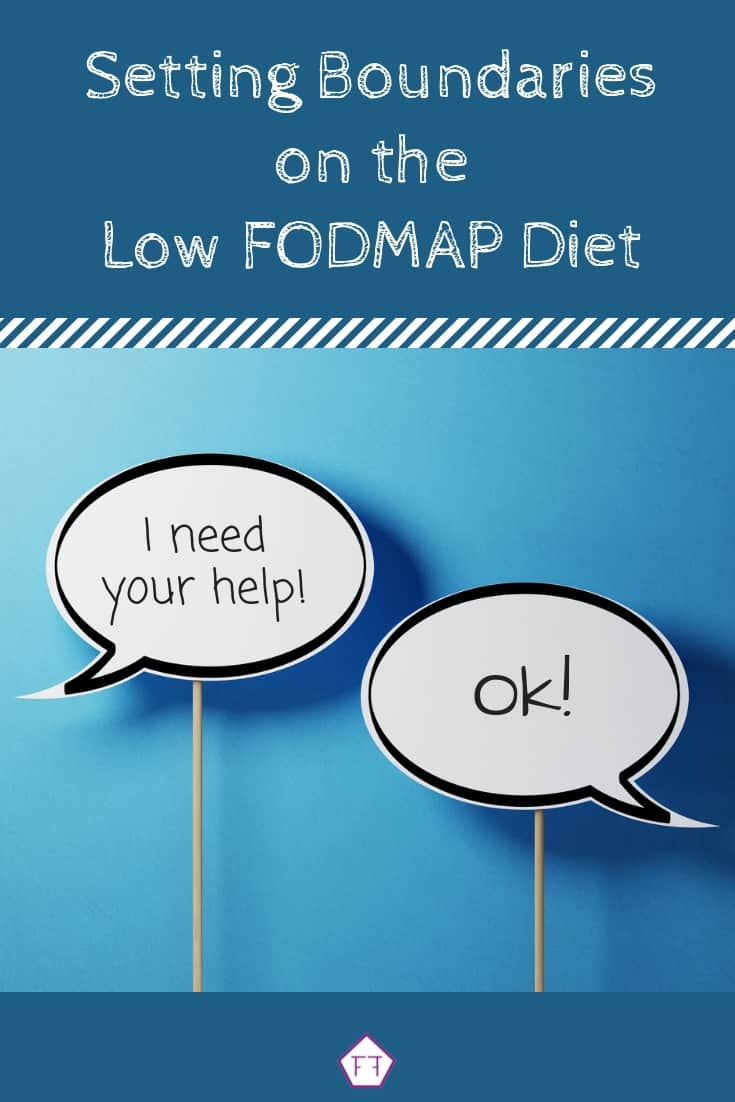It’s hard enough to resist high FODMAP treats while out and about, let alone at 1 am when your willpower has deserted you. Your best bet is to throw out all high FODMAP temptations. But, in reality, you probably don’t live in a vacuum. This means you might have some push-back when trying to remove certain items from your home.
Get ready to dust off your negotiation skills. In this article, we’ll talk about how the Low FODMAP Diet impacts the people around you; and how to make compromises to get the best possible outcome for your low FODMAP program.
Setting Boundaries
I sat down with Natalie Riback, a registered psychotherapist in Toronto, Ontario, to discuss setting boundaries for the Low FODMAP Diet.
Riback started by saying, setting boundaries about food in the home is the same as setting any boundary in a relationship. It should be an open and respectful conversation about what you need, why you need it, and what a reasonable solution might look like.
Riback did warn that some partners, family, or friends, may not understand how hard IBS is, or what the Low FODMAP Diet can do for us. In these cases, she suggests educating people if they’ll listen. This might look like explaining what IBS looks like in your body and what, specifically, we’re trying to accomplish with the Low FODMAP Diet.
In cases where family or friends don’t understand or stay unresponsive, Riback suggests saying something like:
“I get that it may be hard for you to understand what I’m doing or how challenging this is for me, but I hope that you can be sensitive to what I’m trying to do and that I might have a lot of feelings about what’s happening.”
Hopefully, a statement like this will help you set some basic boundaries in your home. However, in cases like these, make sure you pick your battles.

Giving Space for Others to Respond
When I was diagnosed with IBS, I was instantly overwhelmed. It felt like everything I wanted was off-limits. Like I had to choose between delicious food and living pain-free. It all seemed wildly unfair.
My pity party was cut short when my husband came home from work. I had hoped for an Oscar-worthy speech about how my life would get so much better. Instead, he flopped down on the chair next to me and listed all the things he wouldn’t have when we started the Low FODMAP Diet.
I realized in this moment, how important it is to remember that the people who follow or support your diet, do it only for your benefit.
This brings us to an important step of boundary setting: listening to the needs of those around you. In other words, making sure the boundaries that keep you on track, also support the people around you.
Negotiation and Compromise
According to Riback, a key ingredient in successful boundary setting is listening carefully to the needs of others. This is the space where negotiation and compromise thrive.
There are lots of ways to reach our goals without impacting the enjoyment of others. For example, my husband works outside in the summer and really enjoys an ice cream sandwich after dinner. I am physically incapable of resisting the siren call of an ice cream sandwich. Because this never ends well, these quickly ended up on our list of banned foods. We compromised by switching to ice cream cones which my husband likes and I don’t particularly care for.
It doesn’t matter, really, how you work it out between you. As long as when you set your boundary, you listen for the compromise. This way, everyone feels cared for.
Final Thoughts
You can ask for the things you need to be successful, as long as you’re respectful and listen for a compromise where possible. This will help family and friends support you without leaving them deprived of the things they want.
If you like this post, don’t forget to share it! Together we’ll get the low FODMAP diet down to a science!



